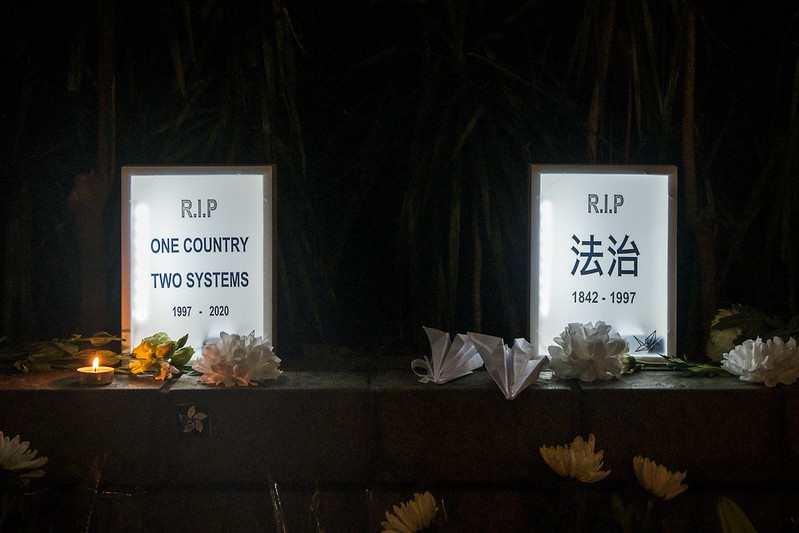
China's President Xi Jinping has signed into law a controversial national security legislation for Hong Kong on Monday, according to Xinhua News Agency. The law was passed without consultation and oversight by Hong Kong's Legislative Council, overriding the principle of 'one country, two systems' in the Basic Law.
The Hong Kong Bar association said in a statement on Monday that "no one in the HKSAR has yet seen a draft of the NSL (National Security Law) is genuinely extraordinary."
According to the 'one country, two systems' principle in the Basic Law, which supposed to be the constitution guiding the governance of Hong Kong as a semi-autonomous region, Hong Kong has a two-tiered semi-representative system of government: the law-making Legislative Council and district councils, as well as an independent judiciary. The Basic Law protects rights such as freedom of assembly and freedom of speech - neither of which exist in mainland China. The Basic Law is valid for 50 years.
Published on Xinhua News Agency today, Chapter 2, Article 9 of the National Security Law reads, "The Hong Kong Special Administrative Region shall strengthen the work of safeguarding national security and preventing terrorist activities. The government of the Hong Kong Special Administrative Region shall take necessary measures to strengthen publicity, guidance, supervision and management of matters involving national security in schools, social organizations, media, and social networks."
"Beijing's so-called 'national security' law - passed on the eve of the 23rd anniversary of the handover of Hong Kong from the United Kingdom to China - signals the death of the 'one country, two systems' principle," said Nancy Pelosi, speaker of the U.S. House of Representatives, in a statement Tuesday.
"The purpose of this brutal, sweeping law is to frighten, intimidate and suppress Hong Kongers who are peacefully demanding the freedoms that were promised. All freedom-loving people must come together to condemn this law, which accelerates Beijing's years-long assault on Hong Kong's political and economic freedoms," she added.
The U.S.-based Christian persecution watchdog International Christian Concern warned in advance of the passage of the law that it might be used to target pro-democracy clergy, as well.
"Under such laws, vocal Hong Kong clergy who have been supportive of Hong Kong's democracy movement, such as Cardinal Joseph Zen and Auxiliary Bishop Joseph Ha Chi-shing, could be extradited to mainland China to be tried, since Beijing considers them to be threats to the regime," stated ICC last week.
"Other hundreds of protestant leaders or Christian organizations who have actively spoken out against the Hong Kong government might face the same fate, since Beijing has said it considers the mass protests that began last June as terrorist acts and any calls for Hong Kong's independence from China as acts of sedition."














